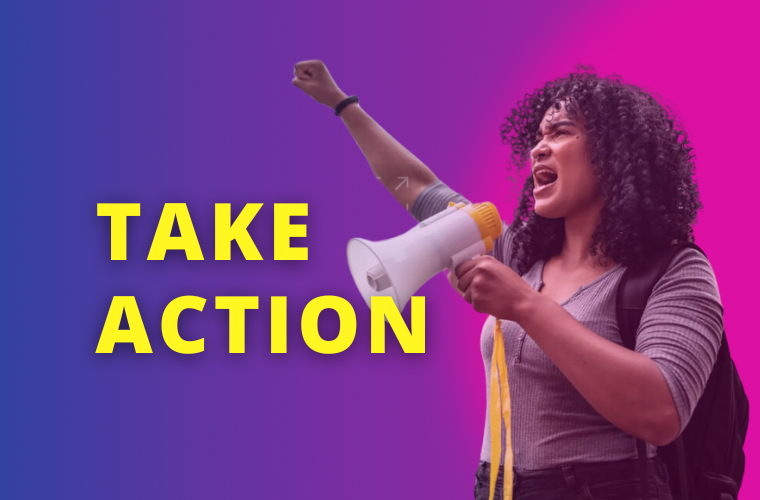

Let The People Decide: Why the Senate SCOTUS Vote Must Wait
Voters will decide the course of our country’s future in just a few short weeks. And that’s the way it should be. With all that hangs in the balance, the federal government’s rush to nominate and appoint a new Supreme Court Justice to replace Justice Ginsburg is a blatant attempt to skirt the democratic process and rob the American people of the right to elect those who decide the fate of our nation’s highest court.
The hasty nomination of Amy Coney Barrett puts our rights and our democracy on the line in a new way. Barrett has displayed a thorough aversion to civil rights even in her distressingly brief stint as a circuit court judge. (Trump appointed her in 2017.) There’s no doubt our most significant advances toward equity of the past few decades — voting rights, disability rights, LGBTQIA+ rights, and access to affordable healthcare, especially reproductive rights — would be in jeopardy.
Also in grave danger is our students’ right to education free from sexual violence. Last year, Barrett was instrumental in a far-reaching decision stacking the odds against student survivors of sexual assault in 22 states and D.C. by making it easier for students found to have committed sexual assault to sue their schools.
56% of voters think the Senate should wait until after the 2020 presidential election to let the winner choose Justice Ginsburg’s replacement.
If Barrett is confirmed, the Supreme Court will enter a particularly partisan and politicized new era. For the first time, a majority of the Supreme Court will have been appointed by Senators who most voters did not choose. And voters from both ends of the political spectrum agree that should not happen. According to a recent New York Times/Siena College poll, 56% of voters think the Senate should wait until after the 2020 presidential election to let the winner choose Justice Ginsburg’s replacement.
But Senate majority leaders have vowed to move ahead with Barrett’s nomination anyway, despite only 4 years ago refusing to hold a vote in an election year for the very same reasons.
And as we surpass 210,000 COVID-19-related deaths, Senate leaders still haven’t been able to pull together the votes needed to provide relief to millions of struggling families. But somehow they can fast track a Supreme Court nomination less than two months before an election. This tells us all we need to know about their priorities.
Those who are elected next month should be the ones deciding who will preside on the Supreme Court for life. The election is already underway, with people voting early and by mail across the country. For this reason alone, the Senate should not even consider moving forward with Barrett’s nomination until after Nov. 3.
We must fight for — and vote for — lawmakers who will build a Supreme Court that works for all of us, not only the 1%. To have courts that protect and advance equal justice for everyone, we need a nominee who is willing to protect the rights of everyday working people and our families. Amy Coney Barrett is not that nominee.
With the future of our democracy in the balance, it must be up to the American people to decide the future of our Supreme Court.
Stay Connected & Take Action
- Get the Latest News & Information Sign up for Email Updates
- Sign Up for Action Alerts Join the Action Team
- Follow Us


